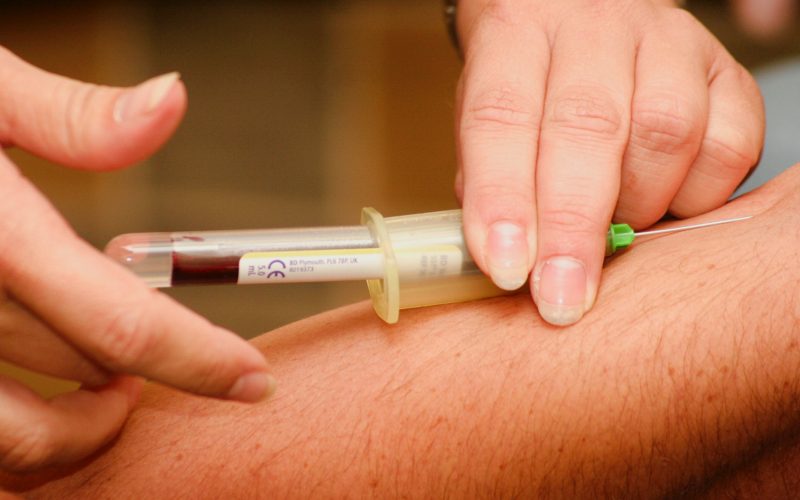Eggs have been a breakfast staple for years, providing us with a quick and easy source of protein. But there’s always been controversy surrounding eggs and their effect on our cholesterol levels. Are they really as bad as people say? In this blog post, we’ll dive into the science behind cholesterol levels, how eggs can affect them, and whether or not you should be worried about your egg consumption. So grab a cup of coffee and let’s crack open the truth about eggs!
What are cholesterol levels?
Cholesterol is a type of fat that’s present in our bodies and also found in food. It plays an important role in the production of hormones, vitamin D, and digestive enzymes. However, high levels of cholesterol can lead to serious health issues such as heart disease.
There are different types of cholesterol. Low-density lipoprotein (LDL) or “bad” cholesterol can build up on the walls of your arteries and increase your risk for heart disease. High-density lipoprotein (HDL) or “good” cholesterol helps remove LDL from your bloodstream.
Cholesterol levels are measured through a blood test called a lipid panel. The test will show your total cholesterol level which should be less than 200 mg/dL. Your LDL level should be less than 100 mg/dL while HDL levels should be higher than 60 mg/dL.
Several factors affect our cholesterol levels such as age, gender, genetics, diet, exercise habits, and certain medical conditions like diabetes or hypothyroidism. Knowing your numbers is essential to maintaining good heart health so make sure to get regular check-ups with your doctor!
How do eggs affect cholesterol levels?
Eggs are a controversial food when it comes to cholesterol levels. Some studies suggest that consuming eggs can raise your LDL (bad) cholesterol, while others insist that there is no link between the two.
One large egg contains around 186 milligrams of cholesterol, which accounts for more than half of the recommended daily intake. However, research has shown that dietary cholesterol doesn’t have as significant an impact on blood cholesterol levels as once believed. Other factors such as genetics and saturated fat intake play a bigger role in increasing LDL cholesterol.
In fact, some studies have found that eating eggs may actually increase HDL (good) cholesterol levels due to their high protein content and other nutrients such as choline and lutein.
It’s important to note that how you prepare your eggs can also affect their impact on your cholesterol levels. Fried or scrambled eggs cooked with butter or oil can increase saturated fat intake, which is linked to higher LDL levels.
Moderate egg consumption (up to one per day for healthy individuals) may not significantly affect most people’s blood lipid profile. However, those with existing high LDL levels should consult their doctor before incorporating eggs into their diet.
Good and bad cholesterol levels
When it comes to cholesterol levels, it’s important to understand the difference between good and bad cholesterol. Good cholesterol, also known as high-density lipoprotein (HDL), actually helps remove bad cholesterol from your arteries and is beneficial for your heart health.
On the other hand, bad cholesterol or low-density lipoprotein (LDL) can build up in your arteries over time and increase your risk of heart disease. It’s important to keep LDL levels low by making healthy lifestyle choices such as eating a balanced diet and exercising regularly.
While eggs do contain some dietary cholesterol, studies have shown that they don’t necessarily raise blood cholesterol levels in most people. In fact, research has found that consuming eggs in moderation may even improve HDL levels.
It’s worth noting that everyone’s body processes dietary cholesterol differently, so it’s always best to consult with a healthcare professional if you’re concerned about your individual needs. Incorporating eggs into a balanced diet can be part of a healthy approach to managing both good and bad types of cholesterol.
How to lower your cholesterol levels
Lowering your cholesterol levels isn’t as hard as you may think. Making small changes to your diet and lifestyle can make a big impact on your health.
Firstly, try incorporating more plant-based foods into your meals such as fruits, vegetables, whole grains, nuts and seeds. These are low in saturated fat which is known to raise LDL (bad) cholesterol.
Secondly, choose lean proteins like fish or skinless poultry instead of red meat. Red meat contains high amounts of saturated fat which raises LDL cholesterol.
Thirdly, limit processed foods and sugary drinks that contain added sugars and trans fats. Trans fats increase the amount of LDL cholesterol in the blood while added sugars contribute to weight gain which also affects cholesterol levels.
Exercise is also important for managing cholesterol levels. Aim for at least 30 minutes of moderate physical activity per day such as brisk walking or cycling.
If these changes don’t significantly lower your cholesterol levels then medication prescribed by a doctor may be necessary.
Conclusion
To sum it up, eggs have been a topic of debate when it comes to cholesterol levels. However, the latest research suggests that moderate egg consumption does not significantly affect blood cholesterol or increase the risk of heart disease in healthy individuals. Eggs are an excellent source of protein and other nutrients and can be included as part of a healthy diet.
It is essential to keep in mind that cholesterol levels are influenced by various factors such as genetics, physical activity level, weight management, and dietary choices. Adopting a healthy lifestyle by exercising regularly, maintaining an ideal body weight and eating a well-balanced diet containing fruits, vegetables and lean proteins can help you maintain optimal cholesterol levels.
If you have high cholesterol levels or any other health concerns related to your diet, consult with your doctor or registered dietician for personalized advice tailored to meet your individual needs. By taking steps towards making healthier food choices and leading an active lifestyle today will go a long way in promoting good health tomorrow!











